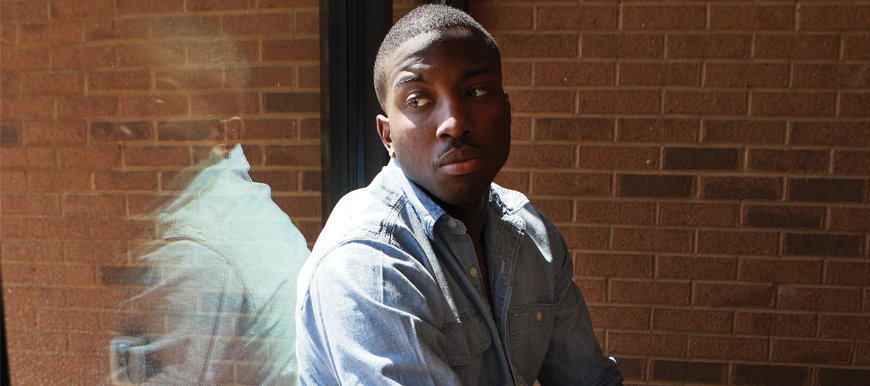Campus provides support for students contemplating suicide
Editor’s note: This is the third story in a three-part series on suicide. Previous articles discussed statistics and potential causes of suicide and coping with suicide. If you or someone you know is experiencing suicidal thoughts, please call the National Suicide Prevention Lifeline at 1-800-273-8255.
A dilemma for people struggling with thoughts of suicide and depression is that “sometimes it feels like you don’t have any place to turn,” said David Bush, director for Counseling and Psychological Services.
But Bush said students at Utah State University need not feel that way because of the many people on campus who want to listen. Krystin Deschamps, the student conduct coordinator in the Student Services Office, is one of those people.
“The one thing I can say with absolute certainty is that the university cares very, very much and takes its responsibility to help students be successful academically and personally very seriously,” she said. “There is a lot of support, and there is a lot of help, and there are a lot of caring people here who will do whatever they can to make things better.”
One resource for support on campus is the CAPS office. Bush said CAPS has taken measures to accommodate the rising trend of students seeking help by increasing the number of priority consultations.
“We have somebody that’s on crisis call every day so that students can come in without an appointment and be seen, but those have been filling up at a much faster rate than ever before,” Bush said.
Because of this, CAPS has added more of what they call “priority consuls.”
“When a student indicates a sense of being at risk for hurting themselves, then we get them in within 24 hours so they can have someone to talk to and sort out what it is that’s feeling helpless or hopeless at this point, trying to foster a sense of hope,” he said.
He also said when people seek help from CAPS, it’s confidential.
Murray Cote, who plans to work on a criminal justice degree at USU this summer, said counseling is usually the first thing his friends suggest when they hear he is feeling depressed or suicidal, but he said he’s not the biggest fan of the idea because “no one knows your life better than you.”
“I shouldn’t say it’s the worst thing to do. … You definitely shouldn’t have it be something you try to get over yourself,” he said. “But … you can share your entire life history with a person — they’re never going to be able to know what you were feeling in that specific stage in time. “
Cote said, for him, loneliness is a driving factor behind suicide.
He said it would help those who are depressed feel like they belong if college students are more accepting of one another and judge each other less.
Taylor Dunigan, a senior who helped plan a memorial service for a friend and fellow Aggie who committed suicide this year, said being welcome to support and less withdrawn is something that would help those suffering from depression or suicidal tendencies.
She said talking to friends and seeking counseling helps.
Bush said the most important thing for someone who is worried about a friend contemplating self-harm is to listen and “let them know that you aren’t afraid to talk.”
Bush understands that friends may feel awkward about approaching the subject, but said people shouldn’t worry that talking about it will make it worse because, “that’s not the case.”
Bush attended the memorial service Dunigan helped organize earlier this month, which had more than a hundred people in attendance.
It’s “remarkable” how many lives are impacted by these individuals, Bush said. Dunigan agreed and said the event hit “close to home.”
“Everybody grieves differently,” she said. “Losing somebody in that particular way is much harder because obviously, everybody feels guilty in some way.”
Bush said although people often feel guilt when a friend commits suicide, it’s not their fault. He said the goal is to create “as many reasons to find hope as possible and then respect individual’s rights to govern their lives.”
He added that many people have a “naive” idea that a good life is a life without difficulty, but accepting that pain is a part of life makes life less difficult.
“It’s nice to be in denial … but I think we can allow people, when they have a rough patch, that (mindset of) ‘Oh yeah, this is part of the deal. It’s just kind of how it works,'” he said. “‘There’s nothing wrong with me because I’m struggling.'”
In addition to CAPS there are services available at the Family Life Clinic, at bottom of Old Main Hill, the behavioral health services at nearby hospitals and Bear River Mental Health, which doesn’t accept clients without Medicaid.
The university is also putting on Mental Health Week, including a workshop on suicide awareness at 12:30 p.m. on Wednesday.
Sheree Haggan, a multicultural coordinator in the Access and Diversity Center, said she’s especially excited for the event on Tuesday where they will have a speaker and plan on dedicating two scholarships in honor of people who have committed suicide.
Bush said he is also looking forward to the event and hope students will feel support throughout the week.
“You may feel like your life doesn’t matter, and yet it matters to hundreds of individuals,” Bush said. “Even if you kind of feel like you’re a zero in the sum of things — not from my observation. I love recognizing how much one life matters, so I hope students will get that when they question their worth.”
— m.noble@aggiemail.usu.edu

